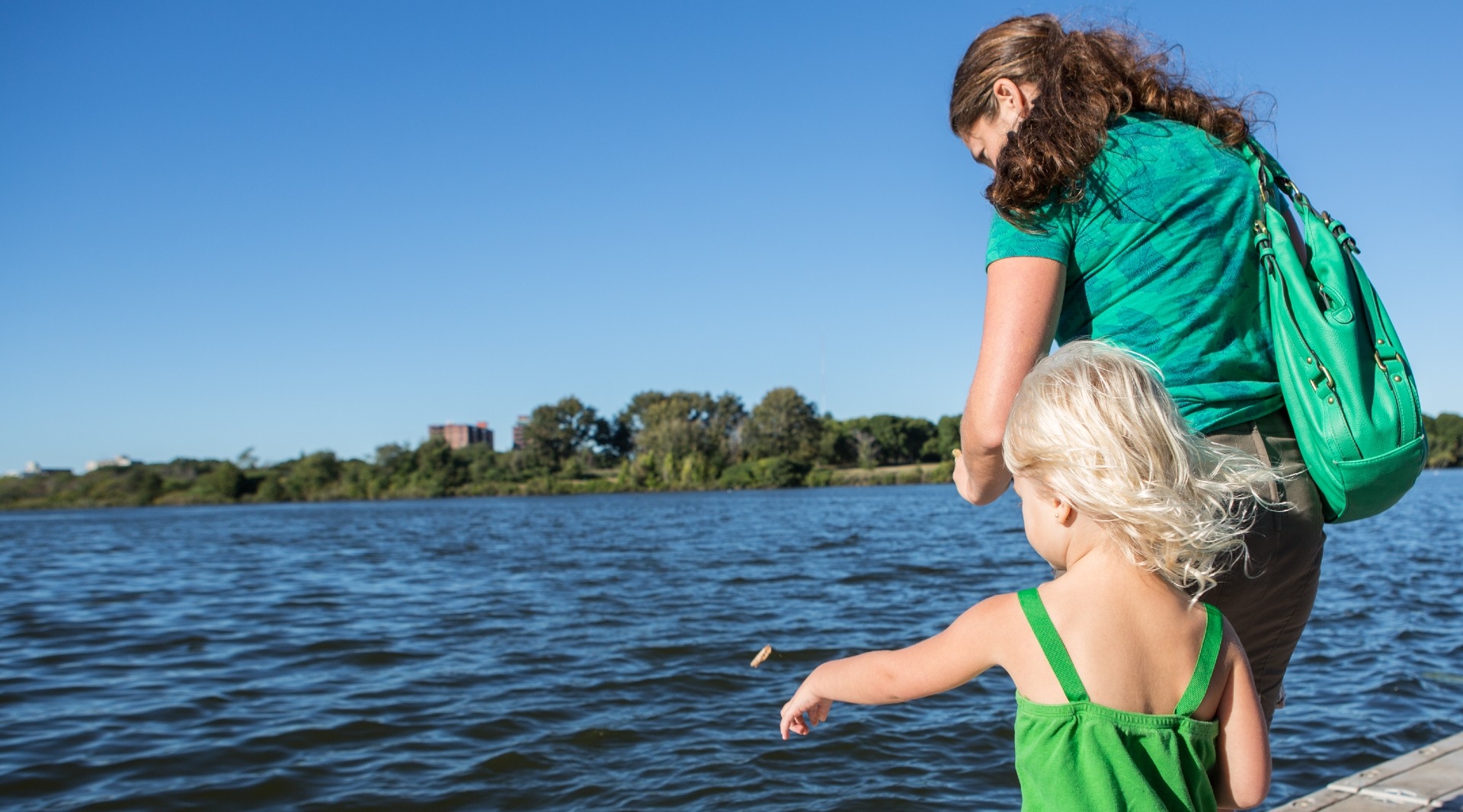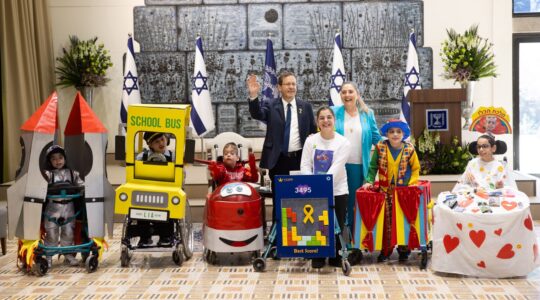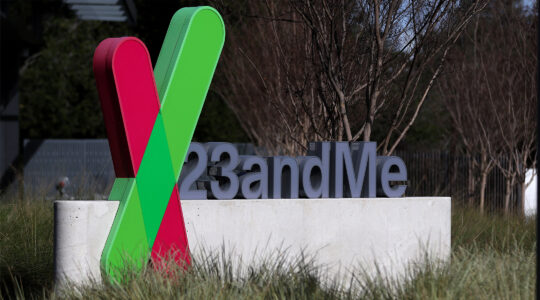At the height of the pandemic in August 2020, Fran Guzy, a retired schoolteacher living in Oradell, New Jersey, was diagnosed with breast cancer.
A month later, she had a lumpectomy to remove her malignant tumor. Then she underwent chemotherapy, followed by radiation treatments. Between her frequent hospital visits and concerns over catching the coronavirus while immunocompromised, Guzy barely got to see her children and grandchildren in Providence, Rhode Island.
But by Rosh Hashanah 2021, she finally had finished all her treatments, and she went to Providence for the holidays. Because of COVID, prayer services at Temple Emanu-El of Providence were held outdoors, in a tent.
Guzy was ready for that, but she wasn’t emotionally prepared for a particularly unique moment during the service.
“The rabbi asked anyone who had faced a really serious obstacle in their lives that year, and were proud of the fact that they were able to get through it, to please come up to the bimah,” she recalled. “I went up with 20 other people. I don’t know why they were there, but I knew what my reason was. And when I sat down, all of us had tears in our eyes.
“It was such a profound moment for me,” Guzy said. “When you face life-threatening diseases like cancer, you truly embrace God.”
For Jewish women struggling with breast or ovarian cancer, the High Holidays — with their focus on matters of life and death and their traditions of family gatherings — can be an emotionally daunting time.
“Words they’ve chanted for years about who shall live and who shall die suddenly take on a new meaning when women are facing their own mortality,” said Shera Dubitsky, a senior adviser to Sharsheret, the national Jewish nonprofit that focuses on cancer education and support.
The challenges can be both spiritual and logistical. Being surrounded by family can serve as an emotional boost, but it may be difficult when relatives offer unsolicited advice. A woman who treasures hosting family gatherings may be forced to forfeit that role because she’s recovering from surgery or undergoing treatment.
“This is obviously a very important time of year in the Jewish calendar, and it’s both reassuring and difficult for people facing an illness like breast cancer,” said Melissa Rosen, director of training and education at Sharsheret. “It could be as simple as a woman not being able to see family or travel, or that she’s immunocompromised and people can’t visit her.”
For others, attending synagogue services may be too strenuous. “Sitting and standing in shul for so many hours can be difficult,” Rosen said. “And for somebody who’s physically worn down by treatment, that might be impossible.”
Sharsheret offers genetic and mental health counseling, critical education, emergency relief funds and financial subsidies for non-medical services to Jewish women facing breast and ovarian cancer. The organization, whose name is Hebrew for “chain,” has staffers or volunteers in all 50 states, many of whom are cancer survivors themselves.
“We offer programs, resources and services to help women at any stage of their journey — whether it’s free phone counseling, caregiver support or toys to distract the kids,” said Bonnie Beckoff, Sharsheret’s director of support services. “We also have 15 social workers on staff who provide ongoing emotional support from the minute of diagnosis through treatment and surgery.”

For Jewish women struggling with breast or ovarian cancer, the High Holidays can be an emotionally daunting time. (AJ Watt/Getty Images)
For Rosh Hashanah, Sharsheret offers a virtual Tashlich program that combines cancer support with the ritual practice in which Jews symbolically cast their sins into a body of water.
“Last year we talked about how when we throw our breadcrumbs into the water, we’re unburdening ourselves,” Rosen said. “Cancer comes with a lot of burdens, so we ask people to write out on water-soluble paper what things they’d like to leave behind in the coming year. It could be the physical pain, or not being able to devote energy to family, or it could be fear. We encourage them to allow the papers to dissolve in water, so they can see it dissipate.”
This year’s virtual Tashlich is set for 12:30 p.m. ET on Sept. 22. The event, called “Letting Go of Cancer-Related Trauma During the High Holidays,” also will feature music by community educator and vocalist Marni Loffman.
One theme the group addressed last year was how to pray for forgiveness when at some level cancer patients may feel they’ve been singled out for ill fortune by being diagnosed with cancer.
“Why did this happen to us? How did my body fail me?” Rosen said. “We spoke about dealing with cancer as Jews, though this is universal enough that others could appreciate it as well. Everyone deals with these things differently.”
Guzy contacted Sharsheret for help after her cancer diagnosis and immediately was connected with a social worker whom Guzy said helped her at critical junctures.
“They sent me all kinds of material. Prior to my first chemo session, I got a package with a book of Sudoku puzzles, candies and warm comfy socks. They thought of everything. They made an awful experience so much easier,” Guzy recalled.
With the High Holidays approaching, Guzy said her cancer experience has given her a new perspective.
“I have a new appreciation for life that I don’t think I had before,” Guzy said. “Every night before I go to bed I write down three things that I love and appreciate. I’m also learning Hebrew online in order to understand all the prayers.”
To register for the virtual Tashlich program or to access Sharsheret’s support care and services, you may contact the organization using this form or call 866 474-2774.
JTA has documented Jewish history in real-time for over a century. Keep our journalism strong by joining us in supporting independent, award-winning reporting.
This article was sponsored by and produced in partnership with Sharsheret, the national Jewish breast cancer and ovarian cancer organization. This article was produced by JTA’s native content team.
More from Sharsheret





